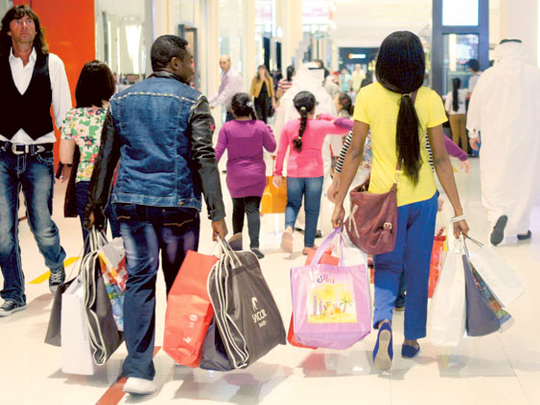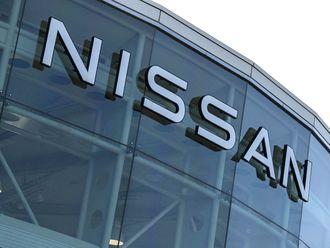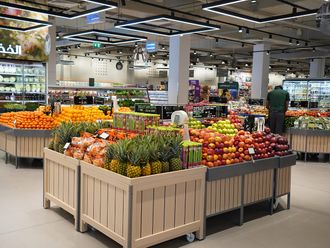
Dubai: Mall managements at some of Dubai’s more popular shopping destinations are “buying back” leases from under-performing retailers to accommodate those on their waiting lists. In some instances, these waiting lists number well over 100 hopefuls and who are willing to pay a considerable mark-up to get into a mall of their preferred choice.
“Essentially, the mall owners will pay existing retailers to leave the spaces vacant to enable the new brands to set up business,” said David Macadam, regional director — head of retail at the property firm Jones Lang LaSalle (JLL). “This buy-out is a good solution for both the departing retailer — seeking to recoup the losses incurred in the poor performing shops — and the developer, who gains new brands for the centre.”
Such innovative leasing practices come in the wake of the robust performance by Dubai’s retail sector, where growth rates for key categories are averaging 20 per cent year-on-year. In such an environment, Dubai’s leading malls can demand — and get — a premium on their new leases.
An estimated lease rate for a leading mall in a standard-size shop in a high profile location could be between Dh5,000 to Dh6,500 per square metre per year.
At one of the leading malls in the city, the waiting list was hovering around the 150-mark earlier in the year. This was even after the mall had completed a major extension of its leasable area. Hence, the constant lookout by malls to find ways and means to get in as many on the waiting list as possible.
No across-the-board gains
Obviously, where they cannot be fitted into newly created spaces, they can only do so at the expense of existing tenants, especially those who are not able to pull their weight. Despite the bounce in Dubai’s retail sentiments, the gains to retailers have not been across the board.
“Mall owners rely to a greater extent on existing, previously agreed lease terms; when the lease is initially signed, the sales/trading density targets are agreed between the retailer and mall owner,” said Macadam. “If the sales which are agreed at the lease signing are not achieved downstream, then the retailer is at risk of having the lease revoked and the space forfeited.
“In this case, the mall owner may be able to take over the premises and provide an opportunity for a new retailer.”
Another option that mall managements exercise is to insist on periodic store renovations on the part of the retail tenants. If a retailer fails to play ball as per the contractual terms, they do run the risk of having their lease disputed. It thus provides new premises for the mall owner to release.
Occupancy levels at leading malls are well above 90 per cent and there is limited scope for new stock to be created from within the existing infrastructure. But the Dubai Mall has an expansion programme, while Burjuman Centre and Al Ghurair City are already into it.
So, what choices are there for leading retail chains as well as those brands which are trying to get in the first time?
Saturation point
“It is primarily the super-regional malls such as Dubai Mall and Mall of the Emirates that have reached saturation point in terms of occupancy,” said Ruban Shanmugarajah, general manager at Babyshop’s UAE operations. It currently has a 33-store network.
“However, we find there are still plenty of opportunities in some of the smaller community-centric malls across the UAE. Being a home-grown brand, Babyshop places a greater focus on opening stores in the immediate vicinity of the local population. This has led to openings in satellite localities such as Dhaid, Khor Fakkan and Baniyas. We will continue to expand our footprint across these smaller residential areas.”
But not all retailers prefer such an approach. For them, a mall location is the only one to have and that availability is at a premium right now. And they do not mind paying that.












